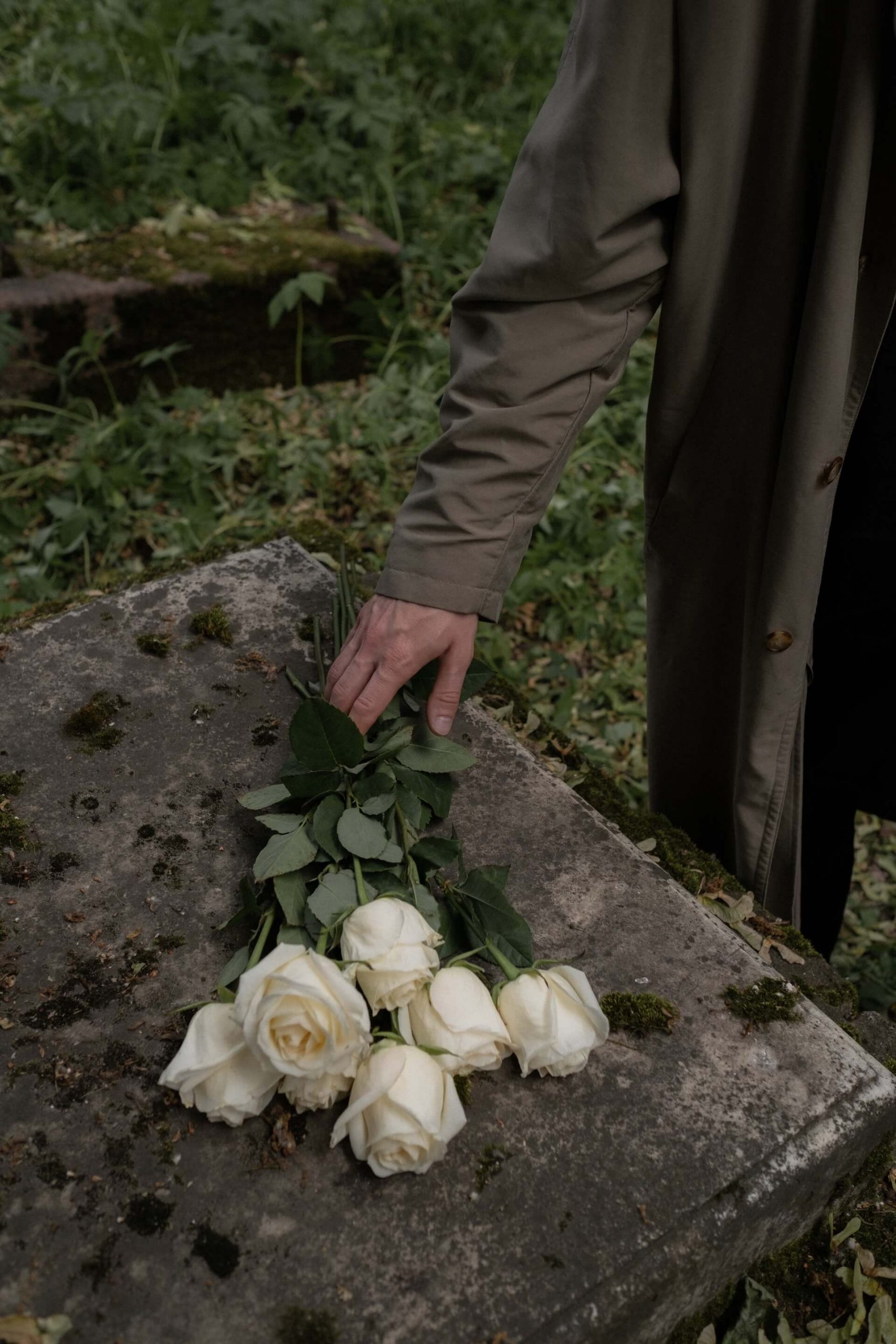
What is Bereavement Support Payment? How much may I receive? How can I claim it? If you recently experienced the death of your partner, you may qualify for this benefit. Your Benefit article will walk you through everything that you need to know about Bereavement Support Payment.
What is bereavement support payment?
It is a benefit for those who recently experienced the death of a loved one. More specifically, whose wife, husband or civil partner died within the past 21 months.
Who is eligible for bereavement support payment?

There are a couple of qualifications necessary in order to qualify for this benefit. First, if you want to earn the full amount for this benefit, it must be claimed within 3 months of the death of your partner. You may claim it no later than after 21 months, but you will not get as many monthly payments.
To be eligible, your partner must have done some of the following. More specifically, one of the following must apply:
- Their death was due to a disease caused because of their work, or an accident that occurred at work;
- They made National Insurance contributions after 6 April 1975 for a minimum of 25 weeks during one tax year.
Additionally, both of the following must have been true for you at the time of their death:
- You were younger than State Pension age;
- You lived in the United Kingdom, or lived in a country where you can be paid bereavement benefits (this includes countries in the European Economic Area (EEA), Switzerland and Gibraltar).
How much is Bereavement Support Payment?
There are two steps to how you will receive your Bereavement Support Payments. You will first receive one. This will be a single payment and will not be repeated monthly. Second, you will receive monthly payments for a maximum period of 18 months.
There are two different rates at which you can earn this Bereavement Support Payments, the higher and the lower rate. The amounts to receive for each rate is as follows:
| Higher and lower rate of Bereavement Support Payment in 2022 | ||
|---|---|---|
| Rate | First single payment | Subsequent monthly payments amount |
| Lower rate | £2,500 | £100 |
| Higher rate | £3,500 | £350 |
Note that the more that you wait to claim this benefit following your civil partner, wife or husband’s death, the fewer monthly payments you will receive. You can only receive payments for 18 months if you claim within 3 months of their death.
Like most other benefits, Bereavement Support Payments are made directly into your building society or bank account.
What if my partner’s death occurred more than 21 months ago?
Your civil partner, wife or husband may have died more than 21 months ago. If this is the case for you, do not worry. Your eligibility for Bereavement Support Payment may still stand. However, there are certain conditions.
In order to still be eligible, the cause of their death must have been confirmed after they died. More specifically, it needs to have been confirmed after 21 months have passed following their death. If so, you could still be eligible to receive the payments. In order to make your claim, you must contact the Bereavement Service helpline.
Will Bereavement Support Payment impact my other benefits?
Other benefits will not be impacted within a year of receiving your first Bereavement Support Payment. In other words, other benefits will not be reduced, and your eligibility will not be impacted, only for the year following your first single payment, regardless of the rate.
You must notify your benefits’ office when you start receiving Bereavement Support Payment. For example, for your situation, this may be your local Jobcentre Plus office.
How to apply for bereavement support payment
There are different ways to claim Bereavement Support Payment. You may do so online, by phone or by post. In order to claim this benefit, you will need a good deal of information. They are as follows:
- Your and your late partner’s National Insurance number;
- The account details of your building society or bank;
- The date of your late partner’s death.
The online application service is a trial service. As such, it is limited in the number of daily applications it can process. You access it on the Gov.UK website. Those living in Northern Ireland can freely apply online.
If you wish to apply by phone, you may do so by contacting the Bereavement Service helpline. If you wish to apply by post, you will need to fill out the Bereavement Support Payment form (BSP1).
You may either download it from the Gov.UK website, or contact your nearest Jobcentre Plus office so that they can send you one. You will have to send the form to the address that is indicated on it. If you live abroad, you may contact the International Pension Centre to claim this benefit. You will most likely need to do this by phone.
What additional help can I receive?
There are a multitude of other benefits and help you may be eligible to receive if you experienced the death of a loved one. For example, your loved one might have died as a result of their work. In this case, you are likely eligible to receive death in service payment. This is a type of insurance that some companies are opted into.
Furthermore, you may need help with funeral costs. If this is the case, you may be eligible to receive Funeral Expenses Payment on top of bereavement support payment. Lastly, if you are a widow, you are likely eligible to receive extra amounts of pension. This is depending on the type of pension that your late partner was receiving.
What is death in service benefit?
Death in service payment is a type of scheme or insurance that people working in certain companies may be eligible to earn. It pays those dependent to a deceased individual if this individual adhered to the scheme and was employed by a company at the time of their death. Death in service is paid by the company.
It is a type of insurance that your late loved one needs to have signed up to. In most cases, it is linked with their company’s pension schemes. As such, they will likely have to be signed up to a specific pension scheme in order to be able to earn this type of insurance.
How much does death in service pay?
Death in service payment pays a lump sum. More specifically, it pays a lump sum that is usually between 2 and 4 times the late individual’s salary. The amount you receive is not taxable. This is the case because inheritance tax may not be applied to it. This is because the scheme holds the money in the context of a trust.
Can I receive help with funeral costs?
You may need help with the funeral costs of your loved one. If this is the case, you may be able to receive Funeral Expenses Payment. It is also known by the name Funeral Payment. In order to qualify for this, you will need to receive a qualifying benefit.
There are more specific conditions to earn this benefit. All the following must apply to your situation. You:

- Are organizing the funeral either in the United Kingdom, a country in the European Economic Area (EEA) or Switzerland;
- And the late individual had a certain relationship;
- Receive at least one qualifying tax credit or benefit.
What tax credits or benefits make me eligible for Funeral Expenses Payment?
- Income Support;
- income-related Employment and Support Allowance (ESA);
- Universal Credit;
- income-based Jobseeker’s Allowance (JSA);
- Pension Credit;
- Housing Benefit;
- Working Tax Credit (the severe disability or disability element);
- Child Tax Credit.
What pension may I receive as a widow?
If you are a widow, there are a multitude of pensions that you may be able to receive. This usually depends on the pension that your spouse or civil partner was earning before their death. As a widow, you may also be able to receive extra amounts of pension. Again, this depends on the type of pension that your late loved one was entitled to.
For example, your late spouse or civil partner may have earned State Pension. If this is the case, you may be eligible to earn extra amounts of State Pension. It is also tied with when you turned State Pension age.



I have not contributed enough National Insurance, My husband has passed away. what benefits will i receive.
Hello,
You should be eligible for much of the bereavement benefits listed. Additionally, you could inherit some of your husband’s National Insurance.
Hope this helps,
Robin